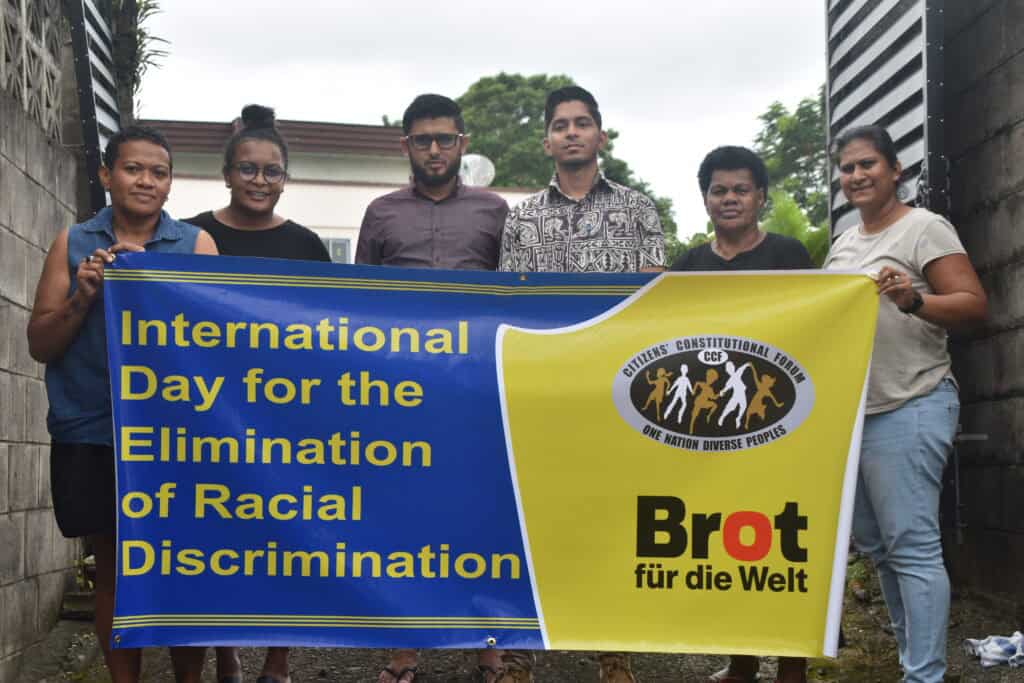Press Release: International Day for the Elimination of Racial Discrimination

Today we commemorate the International Day for the Elimination of Racial Discrimination with the theme “Voices for Action against Racism”. This day reaffirms to each global citizen that all human beings are born free and equal in dignity.
CCF Chief Executive Officer, Louchrisha Hussain calls on all stakeholders and individuals to work together. Our Government leaders should through their actions promote peace and multiculturalism. These are key people in advocating for the eradication of systemic racism, racial and ethnic discrimination. Advancing peaceful coexistence means enhancing productive, meaningful lives and sustainable communities.
“The media, academics, religious groups, faith based organisations and civil society all play essential roles too in leading conversations between different ethnic and religious groups,” says Hussain.
“It is crucial to have open and honest discussions related to race and how it affects everyone. We need to find avenues to change behaviour directed at persons’ from other ethnic groups such as derogatory slurs, insults, impolite forms of address and other forms of discourse that explicitly express and enact superiority and lack of respect. In practice, the onus rests on each of us as individuals to be rid of prejudices especially on racial intolerance. We should all work and live in communities free from racial discrimination,” adds Hussain.
Fiji ratified the convention on the Elimination of Racial Discrimination 49 years ago, binding our Government to honour that signing. Fiji’s policy of inclusiveness is commendable through the Government’s stated commitment to guarantee equality for all citizens, irrespective of their race, ethnic background, religion and efforts to redress past policies of racial and ethnic discrimination. There are also governmental programmes aimed at improving the social and economic welfare of all to promote social cohesion and non-discrimination. To monitor the progress of policies and programmes, disaggregated data is needed to measure whether assistance is reaching those that most need it. This was a recommendation highlighted by the Committee on the Elimination of Racial Discrimination (CERD) to Fiji in 2012. The Special Rapporteur on contemporary forms of racism, racial discrimination, xenophobia and related intolerance on his mission to Fiji in December 2016 noted that in order to measure progress made on the elimination of racism and racial discrimination there needs to be an objective evaluation which can only be undertaken if statistics and in particular disaggregated data are collected and made available. He meant not only data on race and ethnicity but on a whole range of different factors such as gender, age, sexual orientation, geography, income, access to social and economic services and rights. Disaggregated data is valuable as it provides baselines upon which new policies and programmes can be designed.
CCF calls on institutions to use rights based approaches for development through ethnic research and the collection of ethnically disaggregated data. This is to address disparities in development and to tackle inequalities. It is important that all citizens are equally targeted in all aspects of development from social schemes to education to health.
We remind the State of its reporting obligation to the Committee on the Elimination of Racial Discrimination. Fiji’s last reporting was in 2012. The twenty-first and twenty second reports have been overdue since 2016. CCF stands firmly committed to defending human dignity and equality whenever it is threatened.
In keeping in line with the theme “Voices for Action against Racism”, we encourage everyone to embrace and celebrate our diverse backgrounds, cultures and beliefs. Let us all work together to eliminate racism and racial discrimination.
